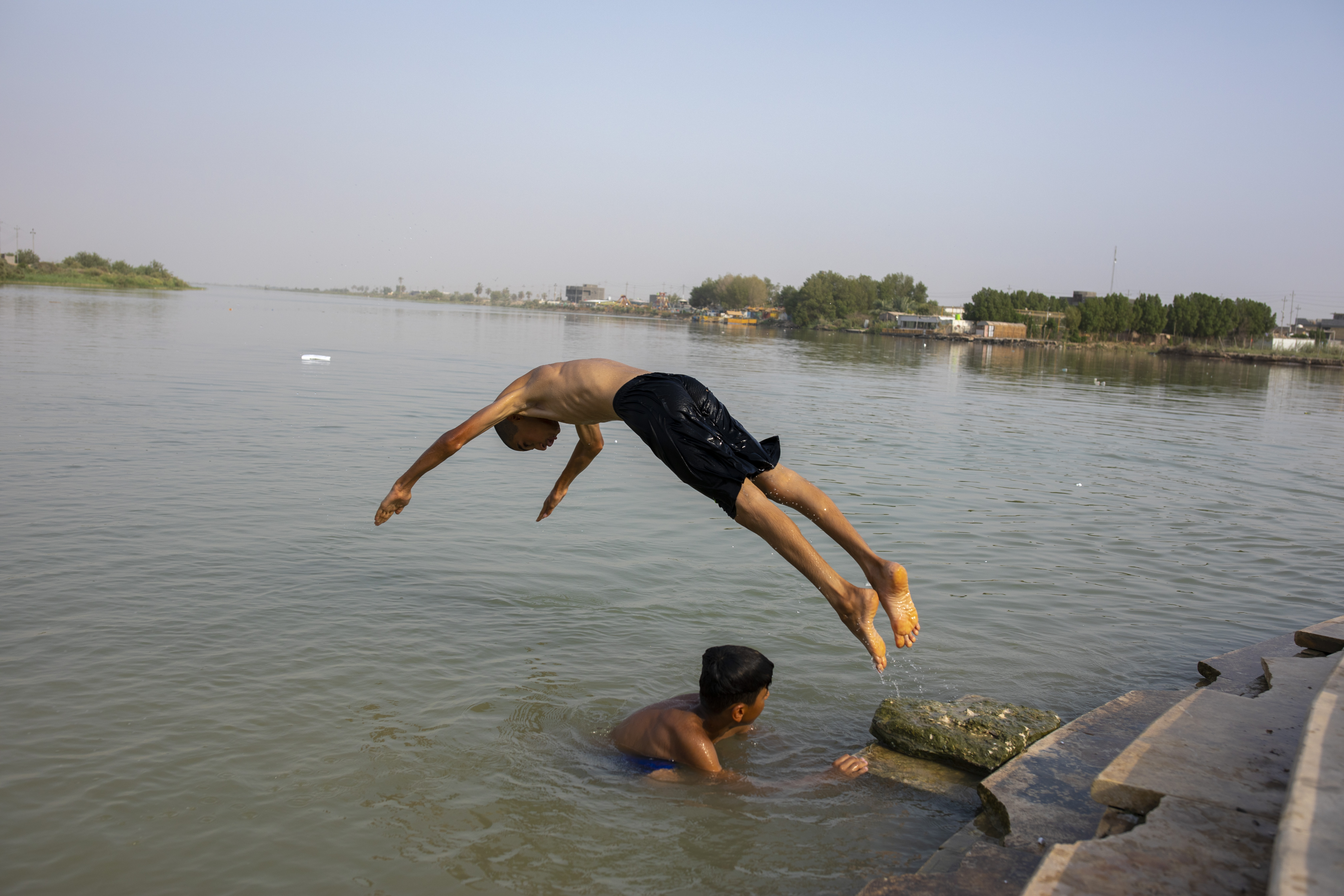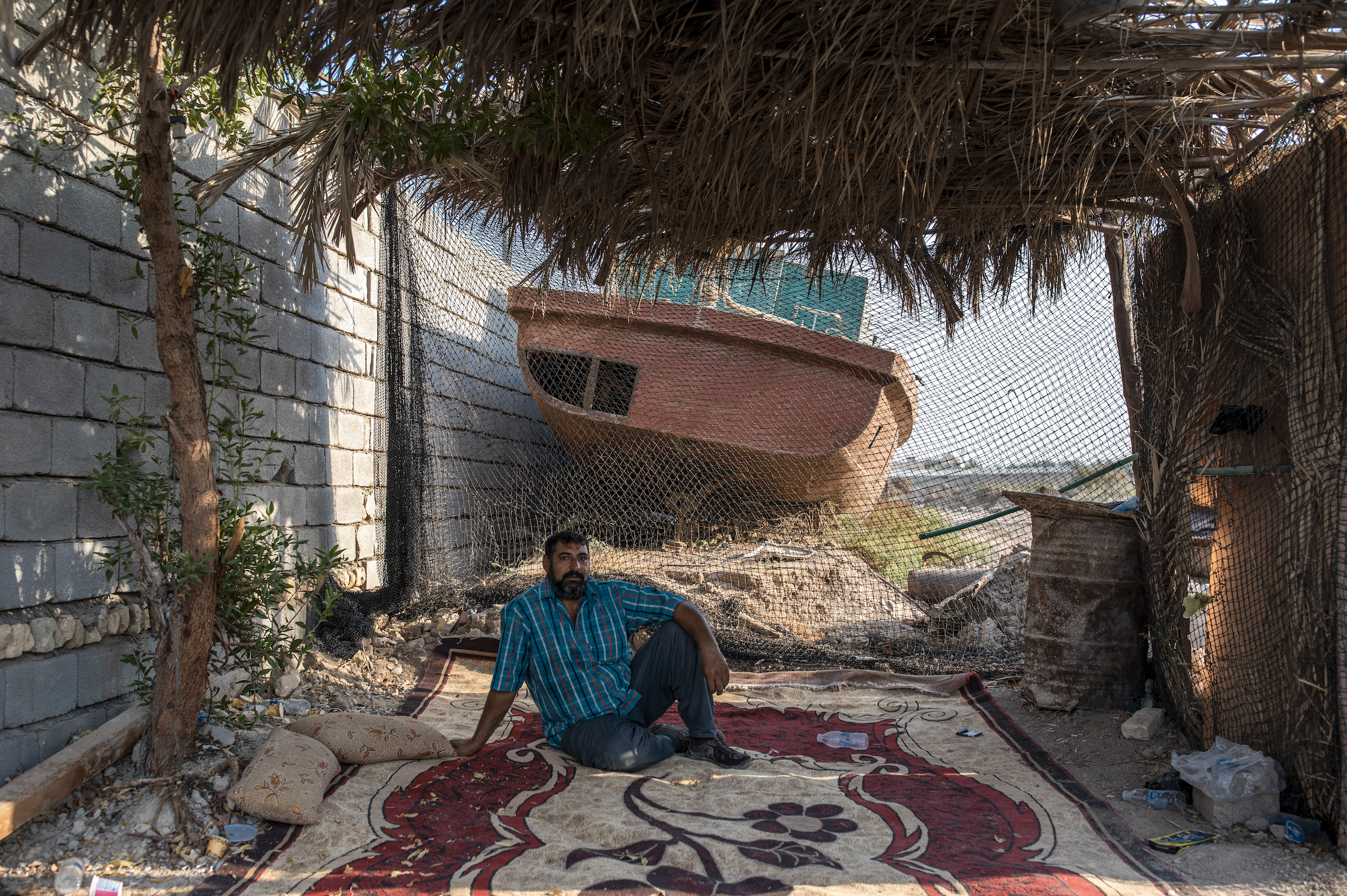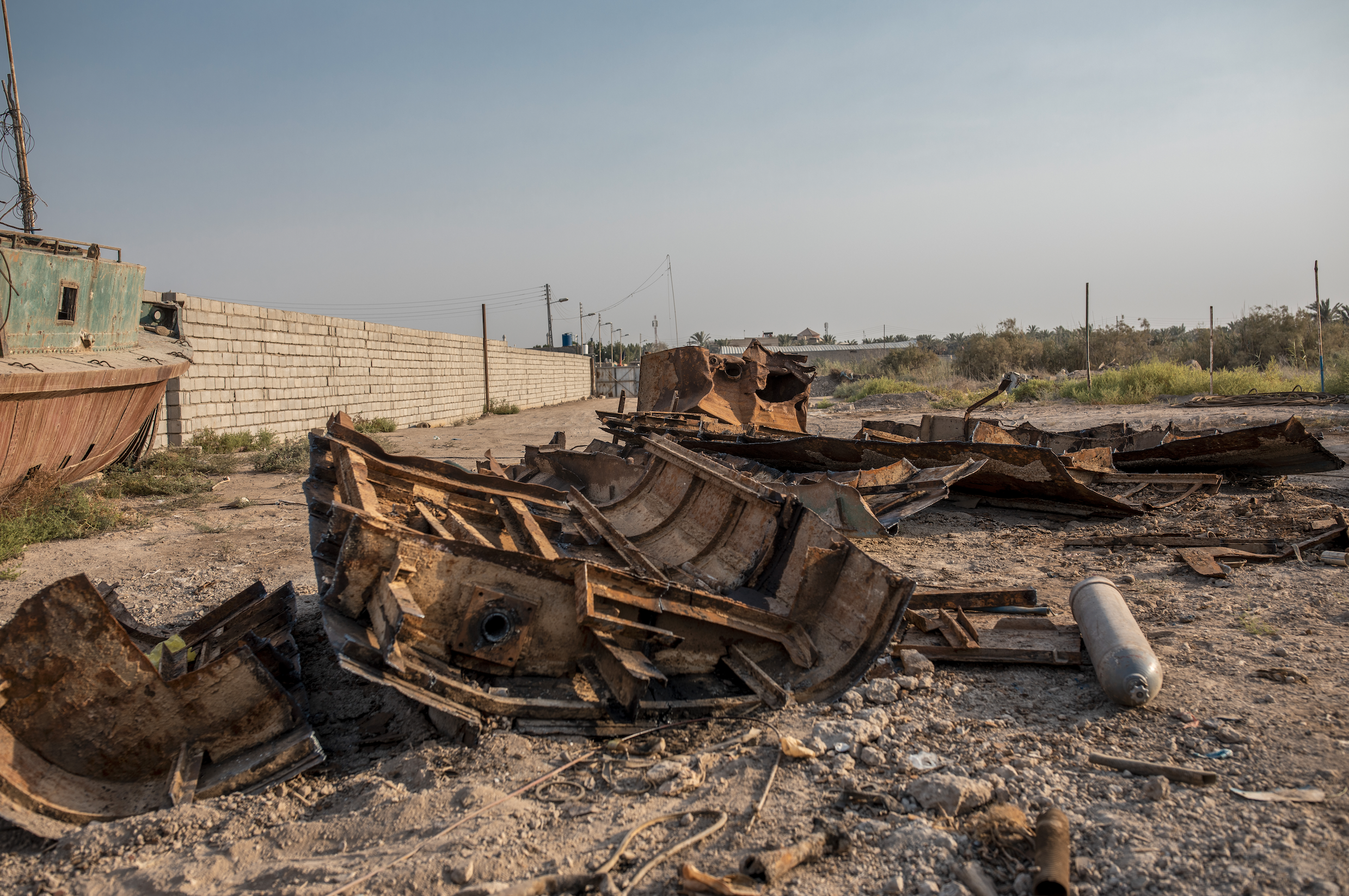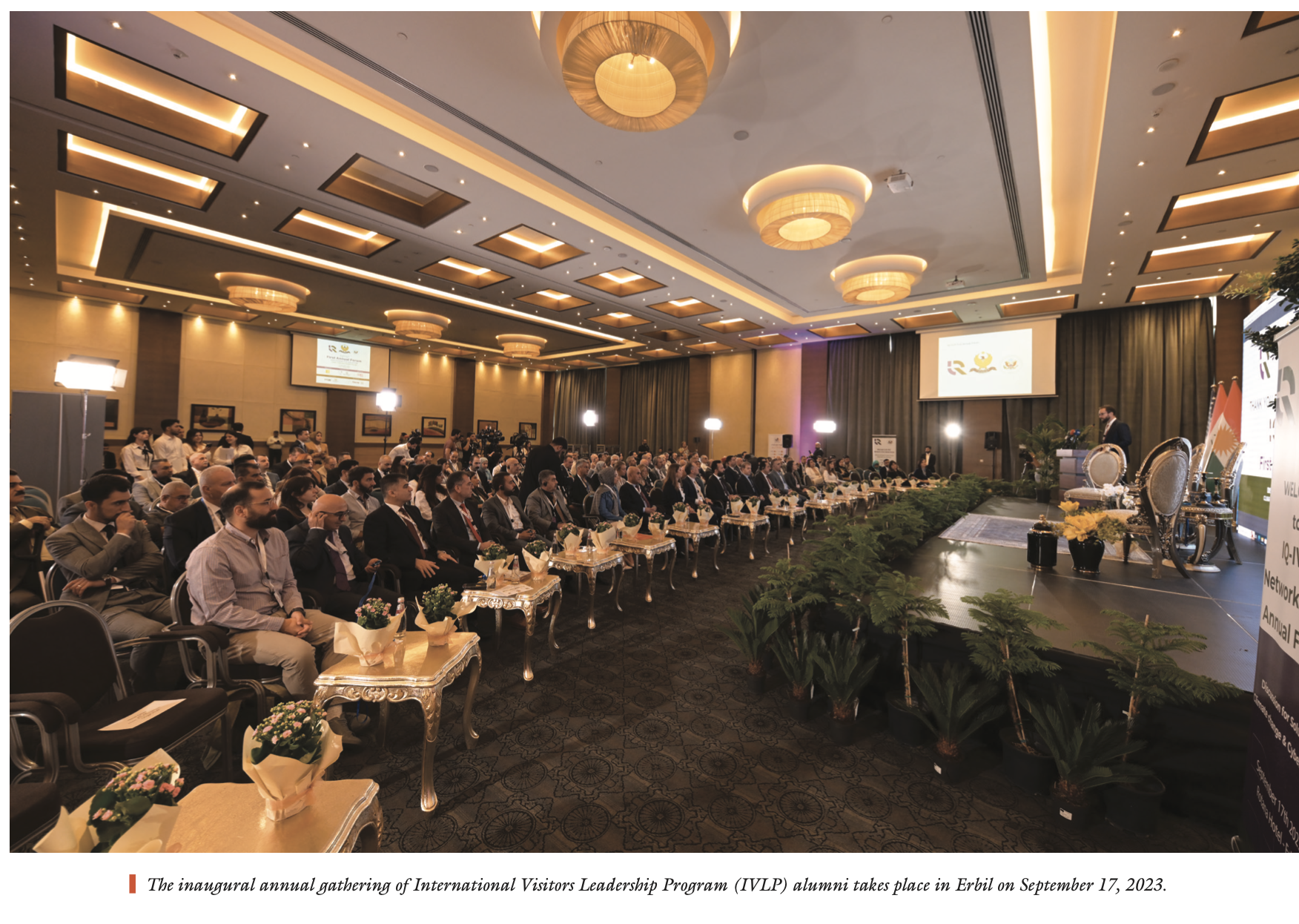The first annual forum of International Visitor Leadership Program (IVLP) Alumni held on September 17, 2023, in Erbil, Kurdistan Region, convened experts from Iraq’s Ministry of Environment, representatives from civil society, and academics to address pressing climate adaptation issues in Iraq. The panel discussed government strategies, civil society missions, scientific foundations, and collaboration in the context of climate change.
The forum’s primary objective was to address the challenge of climate adaptation within Iraq and the Kurdistan Region, underscoring the pressing requirement for comprehensive strategies to tackle the various complex problems brought about by climate change. Panelists accordingly discussed government approaches, the roles of civil societies, and the scientific basis for these initiatives, while also stressing the importance of working together.
The discussion highlighted the urgent need to secure access to clean drinking water for the next generation within the coming decade. Panelists meticulously examined past initiatives, differentiating between those deemed successful and those with counterproductive effects. They correspondingly delved into the scientific basis supporting these initiatives and assessed the availability of scientific resources.
The collaboration between ministries and the allocation of budgets for climate research also faced intense scrutiny. Key solutions were proposed, encompassing water conservation, urban planning, active transportation, and energy-efficient practices. Above all, the discussion underscored the significance of collective responsibility, the necessity for reinforced environmental regulations, and the imperative of international collaboration.

Context and challenges
Iraq is the fifth-most impacted country by climate change, according to the UN Environment Program. The challenges posed by climate change are diverse and include severe water scarcity; extended drought; ineffective water utilization in agriculture, industries, and households; and pollution of water sources. In addition to inconsistent urban planning, insufficient green spaces, lack of sustainable transportation, and an excessive reliance on fossil fuels, greenhouse gas emissions have increased, which has further exacerbated climate challenges.
The panel of experts, consisting of Moderator Dr. Karwan Amen, Abdulrahman Siddiq, Dr. Shireen Younus Ismael, and Saadia Fleih Hassoun, brought diverse perspectives to address these challenges.
Siddiq highlighted the role of governments, particularly in Iraq and the Kurdistan Region, in addressing climate change.
“In 2020, Iraq joined the Paris Convention,” he stated. “In line with this, the Kurdistan Region and Iraq are trying to reduce emissions by 15% and build a clean energy system with international support.”
“What we demand from the international community is that they provide us with new technologies and uphold our national stability,” he added, underscoring the need for international support.
“We must recognize that when a significant amount of rain – the amount that would normally fall over three months – comes down in just one day, it has a different impact. Currently, we are grappling with issues such as water scarcity and rising temperatures.”
Dr. Ismael focused on climate adaptation measures in Iraq, highlighting the challenges posed by low readiness and high vulnerabilities in the country. She emphasized the importance of urban planning, specifically as relates to electricity and transportation.
“In our cities, it’s essential to ensure a minimum of 20% green spaces,” she stated. “We must prioritize efficient infrastructure that minimizes emissions, as our overreliance on cars, even for short journeys, is contributing to the problem.”
Dr. Ismael suggested strategies such as creating green areas, promoting sustainable transportation, and adopting green practices to reduce greenhouse gas emissions. She also drew attention to the lack of focus on national studies and adaptation strategies in climate change research, which is a crucial gap that needs addressing.
Meanwhile, Hassoun presented climate change as a global issue and discussed Iraq’s specific environmental challenges.
“Climate change is not just an Iraqi issue but a global one,” she explained. “Now we are in an emergency situation regarding climate change.” She highlighted numerous negative practices, such as inefficient water usage, pollution, and complex water-sharing agreements with neighboring countries.
During the panel discussion, the experts presented a range of solutions to address the challenges posed by climate change in Iraq and the Kurdistan Region. These solutions included effectively combating climate change by promoting responsible water usage, prioritizing green spaces in urban planning, encouraging active transportation methods, promoting energy-efficient building practices, conducting studies on tree planting, launching public awareness campaigns, strengthening environmental regulations, supporting civil society organizations, engaging with international organizations and donors, promoting multi-stakeholder collaboration, investing in research, and advocating at international forums.
The overall message emphasized the importance of collective action and comprehensive strategies to effectively combat climate change in Iraq and the Kurdistan Region.

Result and recommendations
The panel discussion on climate adaptation in Iraq and the Kurdistan Region revealed several key findings. It highlighted the proactive role of both the government and civil society in addressing climate change through international agreements and local adaptation plans. The ongoing global climate change crisis was firmly placed on the shoulders of major polluters, such as the G20 countries. “Approximately 80% of emissions can be attributed to the G20 countries. We have only contributed a small part to the changes that we are experiencing,” said Siddiq.
At the same time, Iraq and the Kurdistan Region are facing considerable challenges in adapting to the consequences of this environmental crisis. The conversation stressed the importance of recognizing how climate change is significantly altering the availability of water resources, resulting in issues such as water scarcity, extended periods of drought, and rising temperatures, all of which, in turn, have a direct impact on agriculture. Dr. Ismael highlighted the adverse effects of planting trees in inappropriate locations.
“Planting trees in the wrong locations can lead to temperature increases,” she noted. “It is recommended to conduct a comprehensive study on the characteristics of both the trees and the soil to maximize the potential benefits of reforestation.”
Furthermore, the discussion emphasized the critical role of urban planning because cities are major contributors to the harmful emissions of greenhouse gases. Hassoun stressed the role of the community in combatting climate change.
“We need everyone to work together on this issue; spreading awareness on social media and other kinds of media can have an effect,” she said.

“We wasted a lot of water without planning for the future,” Hassoun added, calling for stricter environmental laws to address these issues and stressing the importance of raising awareness among the general population.
To effectively address these challenges, the panelists had several recommendations. First, there is a need for greater international solidarity and support for Iraq and the Kurdistan Region, recognizing their vulnerability and limited contributions to global climate change. Developing a comprehensive national climate strategy that combines mitigation and adaptation measures is imperative.
Additionally, investing in education and awareness campaigns to inform the public about climate change and its implications can be a powerful tool for change. Collaborating with international partners for technology transfer, focusing on green infrastructure in urban planning, enforcing stricter environmental regulations, engaging local communities, and conducting research to understand local climate challenges are all essential steps.
Finally, continued advocacy at international forums is crucial to raise awareness of the unique climate challenges faced by Iraq and the Kurdistan Region. These recommendations collectively aim to foster resilience, reduce emissions, and secure a sustainable future for the region.

Conclusion
The conversation about climate change, water shortages, and environmental problems in Iraq and the Kurdistan Region drives home the fact that people must act together with a comprehensive strategy to tackle these pressing concerns. Iraq’s ranking as the fifth-most impacted country by climate change and the fact that water scarcity is a major factor in displacing people within the country shows how serious these challenges are.
Solutions span from water conservation and efficient urban planning to public awareness campaigns and stricter environmental regulations. The forum also highlighted how vital it is for countries to work together, rely on research driven by data, and involve various stakeholders in their efforts to effectively tackle climate change.
In the end, the conversation underscored that Iraq and the Kurdistan Region, even though they are particularly at risk from the effects of climate change, are not the main culprits behind the global emissions problem. This places a moral and practical obligation on the international community, particularly those countries emitting the most greenhouse gases, to provide support for their endeavors.
Addressing climate change in these regions requires immediate and sustained action. What is needed here is for someone to step up and take charge, for all parties to work together, and to make a firm promise to construct a future that can withstand the test of time. By putting the suggested solutions into action and working alongside other countries on the global stage, Iraq and the Kurdistan Region can genuinely make progress in lessening the effects of climate change and securing a source of clean water for the generations to come.
Raneen Taher Alkjimimi is currently working with the UN organisations and pursuing master’s degree in Genocide at StocktonUniversity in the US.
Diana A. Kako is an assistant lecturer at University of Duhok, College of Nursing.
Lavin J. Putrus is a civil activist, holds master degree in Plastic and Reconstructive surgery.
Bahar Aljammoor is the director at Counterpart international/USAID program.